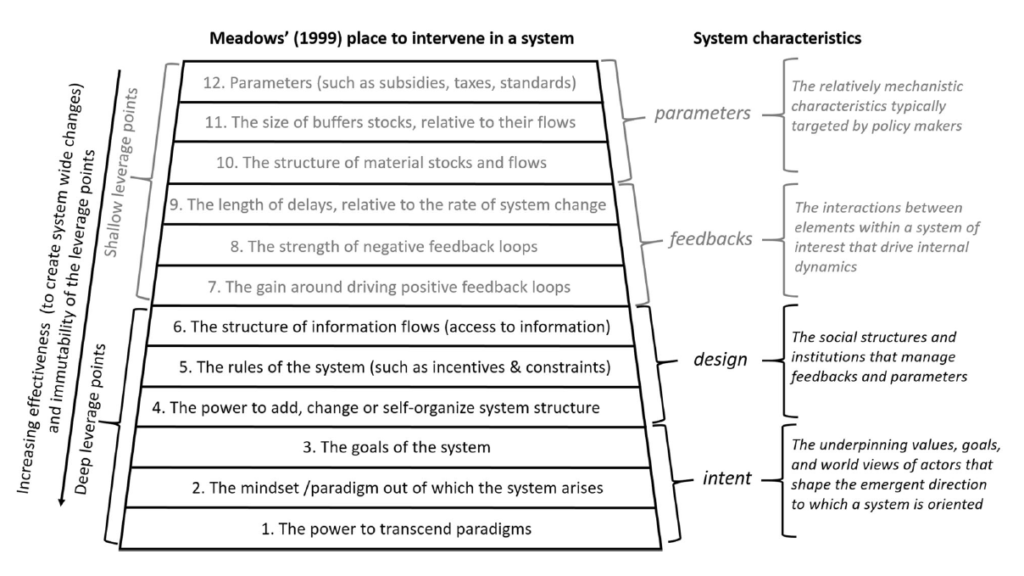
In her thinking on systems, Meadows posited 12 levers that could work towards changing systems. The most powerful lever was the ability to actually transcend the paradigm of the system to create a new paradigm. Following this were levers that focus on shifting the mindset of the system or its goals. I am thinking on these levers, generally and more specifically in the context of my current employer, JFF (Jobs for the Future). JFF is a national nonprofit that works at the intersection of the education and workforce systems with a mission to improve economic mobility and advancement for ALL members of our society. As an organization, JFF sits in a unique position as an intermediary working across sectors and fields to help align and improve various systems. I’ve worked at JFF for two years, and from my vantage point, JFF is solidly working with the 4th most powerful lever – “the power to add, change, evolve or self-organize system structure.”
JFF supports and works to improve how institutions of higher education work, how workforce systems (both from the supply and demand side) operate, how K-12 learning can transform and how individuals and those working with them might better navigate and make sense of their lives and careers all towards creating more sustainable futures workers and their families. I am not sure that JFF is positioned to transcend our current paradigms, but I do think the organization has the ability to move up a level or two in the levers of change. As a boundary spanning actor, JFF has the ability to articulate, influence, and likely shift the goals of current systems. Our equity and economic mobility lens are critical to how we work to do that. I also believe that with some strategic visioning and reflection, JFF has the ability to influence others towards larger mindset shifts. Our biennial conference, Horizons, and the close connections the organization’s leaders have to funders, employers, policy makers, and system leaders mean we are in the places and spaces to influence. JFF is at the table rooted in 35 years of practice, trust, and influence.
What is ruminating in my head right now is what are the big visionary goals JFF wants the systems we work in to move towards? What is that mindset shift we want others to make? Any organization that can answer these questions and then move others in the system to act with them can make profound system change. I personally am excited for the next phase of work at JFF. In the meantime, I am also thinking about what would it mean for the economy, if workers were at the center of it all? What if the “economy” worked to maximize the potential of workers rather than profits? What would an economy like that look like? I think Amartya Sen and Martha Nussbaum have explored such political economic theories.

